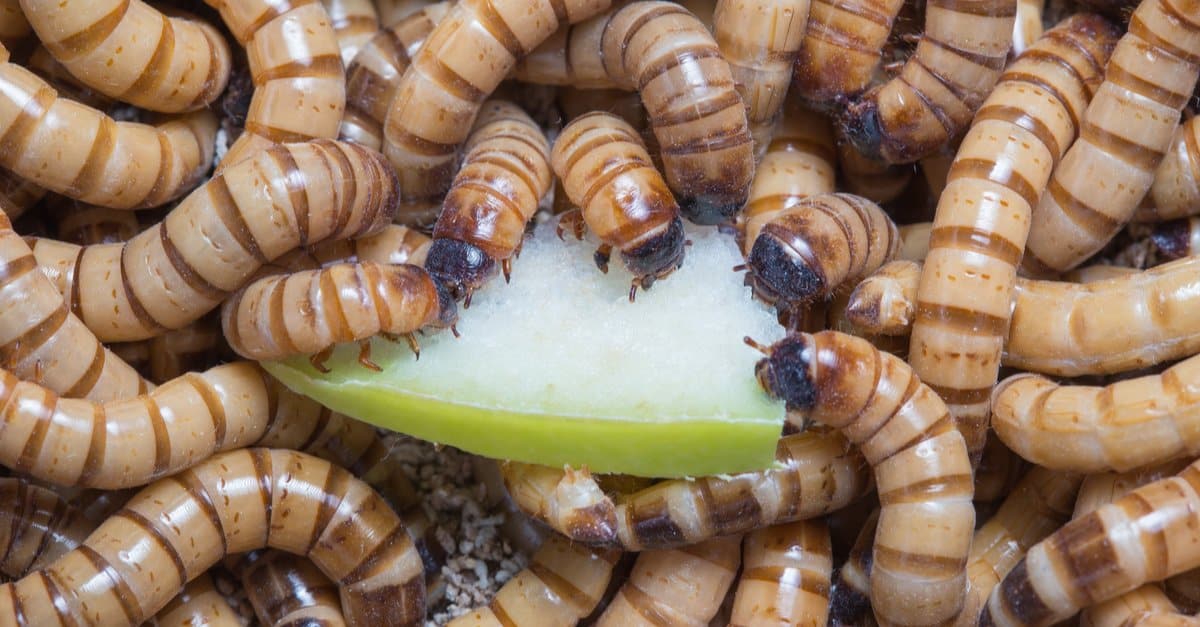Worms for animals are more than just a wriggling snack; they are a powerhouse of nutrition packed into a tiny package. Whether you have a reptile, bird, or small mammal companion, incorporating mealworms into their diet can significantly enhance their overall health and vitality. So, here is what you must know about them:
Understanding the Nutritional Value
They are rich in essential nutrients, making them an ideal supplement to your pet’s diet. They are packed with protein, which is crucial for muscle development and overall growth. Additionally, they contain beneficial fats that provide a source of energy for your pet. These fats are important for maintaining a healthy and glossy coat, particularly in animals with fur or feathers.
Promoting Optimal Health
Integrating worms into your pet’s diet can have numerous health benefits. The high protein content supports proper muscle function and can aid in weight management. For animals recovering from illness or injury, mealworms provide a nutritious boost to help speed up the healing process. Furthermore, the natural vitamins found in them contribute to overall immune system support, helping to keep your pet resilient against common illnesses.
Enhancing Mental Stimulation
Feeding worms to your pet can also serve as a form of mental enrichment. Many animals enjoy the challenge of hunting and capturing their prey, mimicking their natural instincts in the wild. This mental stimulation can prevent boredom and decrease the likelihood of behavioural issues like aggression or excessive chewing.
Feeding Guidelines
When introducing them into your pet’s diet, it’s essential to do so in moderation. While they offer valuable nutrients, such worms should be used as a supplement rather than a primary source of food. Consult with your veterinarian in order to determine the appropriate serving size based on your pet’s species, size, and dietary requirements.
Variety Is Key
Incorporating a variety of foods into your pet’s diet is crucial for ensuring they receive a well-rounded nutrition profile. While they offer many benefits, they should be part of a diverse diet that consists of fresh fruits, vegetables, and other protein sources. Rotating different foods can prevent nutritional deficiencies and keep mealtime exciting for your pet.
Choosing Quality Worms
When selecting worms for your pet, quality matters. Look for reputable suppliers that offer live, healthy worms free from contaminants. Avoid purchasing them from dubious sources, as they may carry harmful bacteria or pesticides that could harm your pet’s health.
Exploring Treat Options
In addition to serving them as a standalone snack, there are various ways to incorporate them into your pet’s diet. For example, you can blend them into homemade treats or sprinkle them on top of your pet’s regular food for an added nutritional boost. Experimenting with different mealworm recipes can add variety to your pet’s diet and keep mealtime interesting.
Introducing Worms to Picky Eaters
Some pets may be hesitant to try them initially, particularly if they are accustomed to a specific diet. In such cases, it’s important to introduce such worms gradually and experiment with different feeding methods. Some owners find success by mixing worms with their pet’s favourite foods or using them as a reward during training sessions. Patience and persistence are key when encouraging picky eaters to embrace worms as part of their diet.
Importance of Proper Storage
Proper storage is necessary to maintain the nutritional integrity and freshness of worms. Store them in a cool and dry place that is away from direct sunlight. This helps in preventing them from spoiling or becoming infested with pests. Additionally, be mindful of expiration dates and discard any ones that appear discoloured or have a foul odour.
Worms for animals are a valuable addition to any pet owner’s toolkit. Packed with essential nutrients, they can help supercharge your pet’s nutrition and overall well-being. By incorporating such worms into your pet’s diet in moderation and alongside other nutritious foods, you can ensure they thrive and live a long, happy life.









